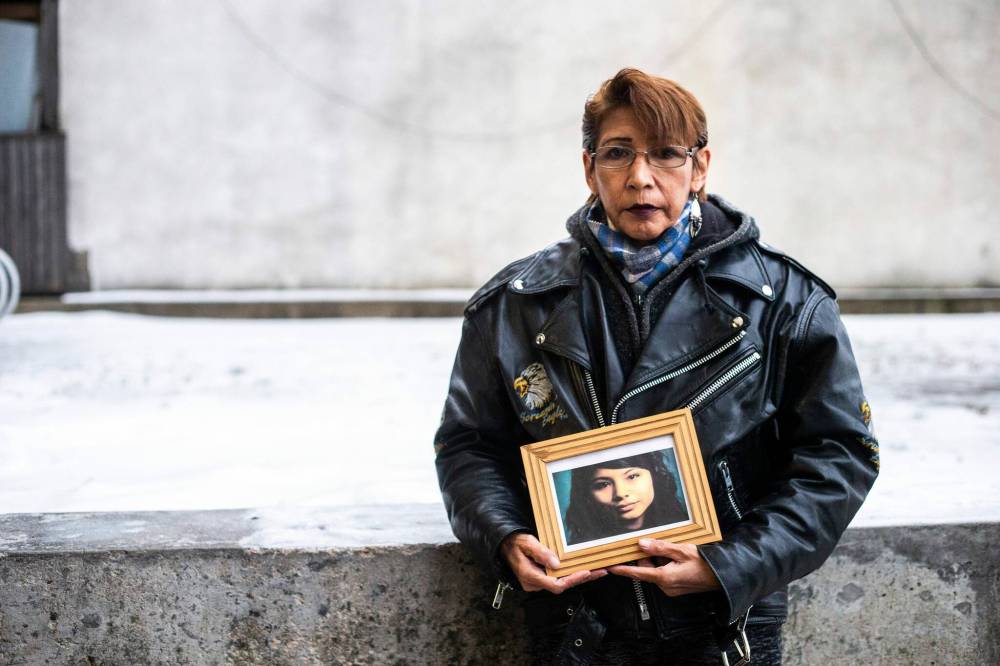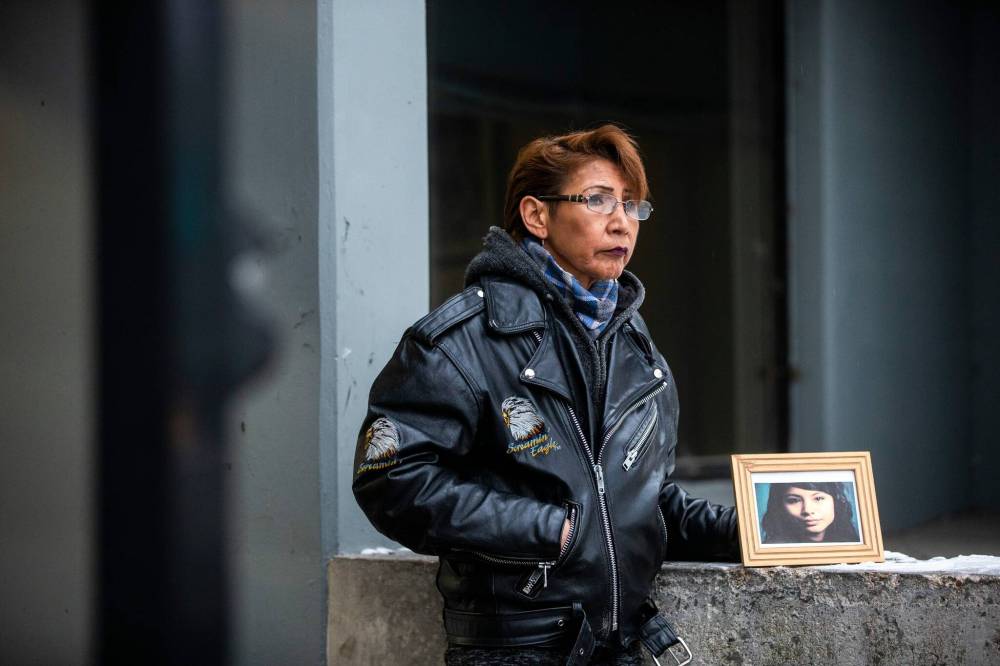Potential search of landfills painful reminder for aunt of missing woman
Advertisement
Read this article for free:
or
Already have an account? Log in here »
To continue reading, please subscribe:
Monthly Digital Subscription
$0 for the first 4 weeks*
- Enjoy unlimited reading on winnipegfreepress.com
- Read the E-Edition, our digital replica newspaper
- Access News Break, our award-winning app
- Play interactive puzzles
*No charge for 4 weeks then price increases to the regular rate of $19.00 plus GST every four weeks. Offer available to new and qualified returning subscribers only. Cancel any time.
Monthly Digital Subscription
$4.75/week*
- Enjoy unlimited reading on winnipegfreepress.com
- Read the E-Edition, our digital replica newspaper
- Access News Break, our award-winning app
- Play interactive puzzles
*Billed as $19 plus GST every four weeks. Cancel any time.
To continue reading, please subscribe:
Add Free Press access to your Brandon Sun subscription for only an additional
$1 for the first 4 weeks*
*Your next subscription payment will increase by $1.00 and you will be charged $16.99 plus GST for four weeks. After four weeks, your payment will increase to $23.99 plus GST every four weeks.
Read unlimited articles for free today:
or
Already have an account? Log in here »
Hey there, time traveller!
This article was published 13/12/2022 (1090 days ago), so information in it may no longer be current.
Those debating whether local landfills must be searched for the remains of missing Indigenous women should consider what they would do if it were their loved one, says a Winnipeg woman whose niece disappeared more than a decade ago.
“We can’t just leave our missing and murdered at the dump,” Susan Caribou said, speaking through tears during a phone interview Tuesday. “These are human beings.”
Caribou’s niece, Tanya Nepinak, 31, went missing in 2011. Nepinak’s presumed slaying had been linked to Shawn Cameron Lamb, who in 2013 was sentenced to 20 years for killing two Indigenous women. Charges against Lamb in the Nepinak case were stayed.

MIKAELA MACKENZIE / WINNIPEG FREE PRESS
“We can’t just leave our missing and murdered at the dump,” said Susan Caribou, aunt of Tanya Nepinak. “These are human beings.”
Caribou has put her support behind the family of Morgan Harris, who are demanding a halt to operations and a comprehensive search of the Brady Road and Prairie Green landfills, located south and north of Winnipeg, respectively.
City police recovered the partial remains of Rebecca Contois, 24, in June at Brady Road.
Contois, Harris, 39, Marcedes Myran, 26, and unidentified woman (temporarily named Buffalo Woman by elders) are reported to be victims of accused serial killer Jeremy Skibicki.
Police believe the remains of Harris and Myran may have been dumped by a collection truck at Prairie Green on May 16. They do not have a “definitive” location of Buffalo Woman’s remains.
News of Skibicki’s alleged crimes and the prospect of potential landfill searches has retraumatized Caribou, 57. She has suffered depression, anxiety and health troubles, describing herself as “a walking zombie.”
“To this day, I still cry for my niece because she is forgotten… I pray every day there will be closure for my family.”
Caribou said she has been communicating with the Harris family and offering any assistance.
“They don’t want people to keep putting garbage there because we believe our relatives are there,” she said of stalling landfill operations. “You can’t keep moving on without closure.”
A successful search effort will require collaboration between all levels of government, police, Indigenous communities, families and volunteers, she added.
Prairie Green, a few kilometres north of the Perimeter Highway, is under the jurisdiction of the RCMP. On Tuesday, newly appointed Assistant Commissioner Rob Hill offered his condolences and said the Manitoba Mounties stand ready to assist as needed.
Caribou suggested bringing in Indigenous elders to conduct ceremonies and help guide a search effort — something police agreed to during a November 2013 landfill search for Nepinak’s remains.

MIKAELA MACKENZIE / WINNIPEG FREE PRESS
News of Jeremy Skibicki’s alleged crimes and the prospect of potential landfill searches has retraumatized Caribou. She has suffered depression, anxiety and health troubles, describing herself as “a walking zombie.”
At the time, police, however, realized their information was vague and possibly incorrect at the large Brady Road site, Caribou said.
They agreed to a scaled-down search based on Indigenous guidance, but Caribou said the area investigated was not the one elders chose and efforts including using rakes to shuffle around garbage.
Caribou called the six-day search “performative… It was heartbreaking… I felt cheated.”
Last week, Winnipeg Police Service Chief Danny Smyth and Insp. Cam MacKid told reporters any new search of the landfills will be difficult, dangerous and expensive.
In the case of Prairie Green, there are numerous challenges, including the passage of time, safety concerns and the overwhelming amount of material at the site, which recently includes 1,500 tonnes of animal remains and 250 t of asbestos.
Prairie Green’s owner, Waste Connections of Canada, halted operations amid ongoing discussions at various levels about the possibility of searching the four-acre landfill. Indigenous leaders, City of Winnipeg, province of Manitoba, and Ottawa are involved in exploring options.
— with files from Erik Pindera
tyler.searle @freepress.mb.ca








